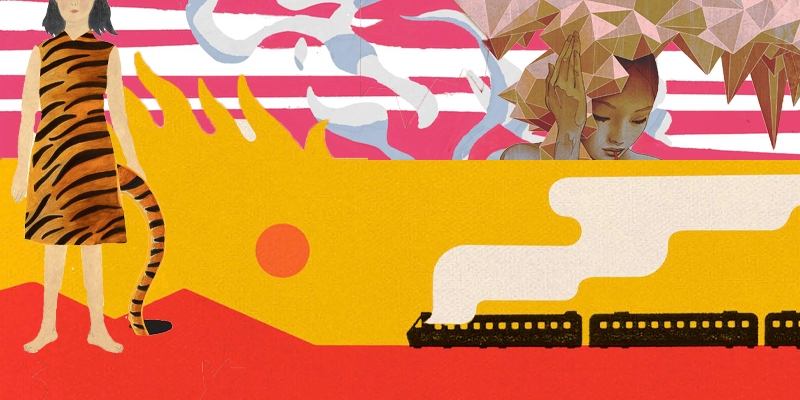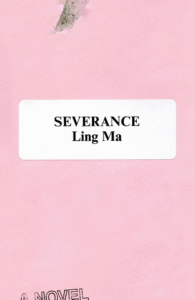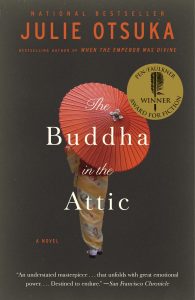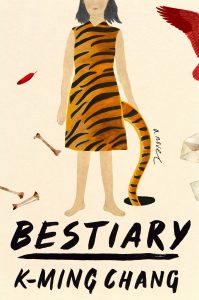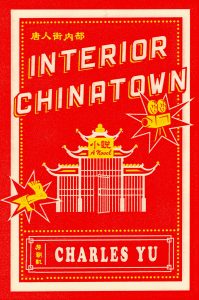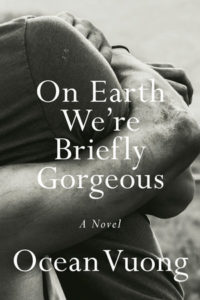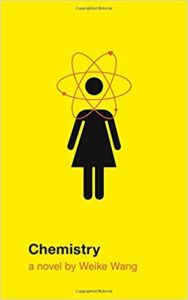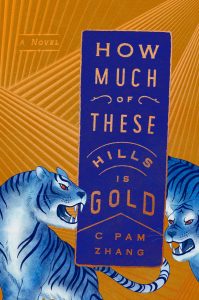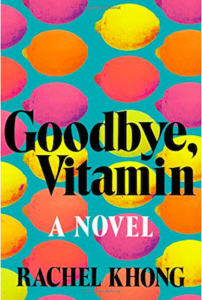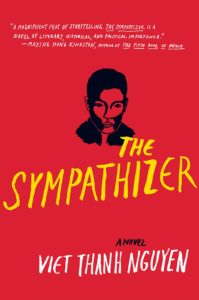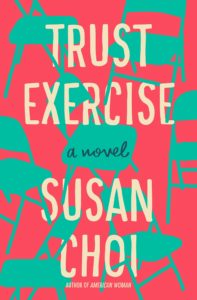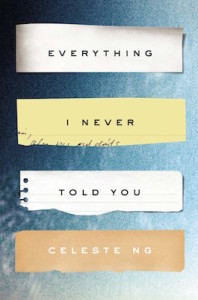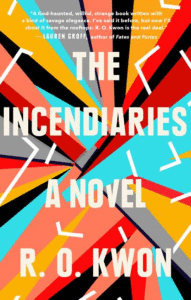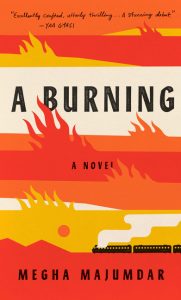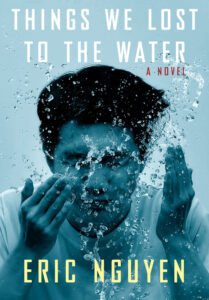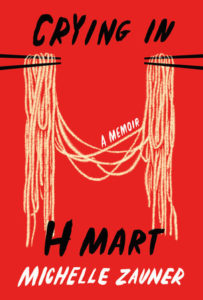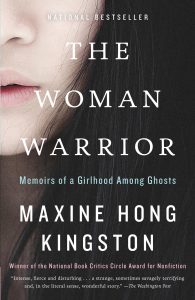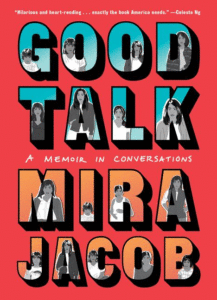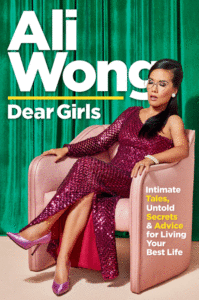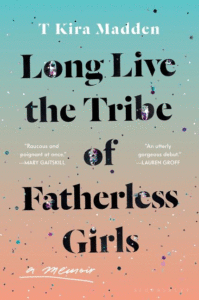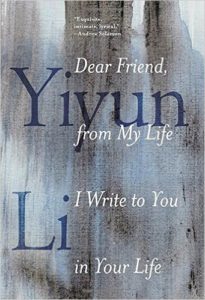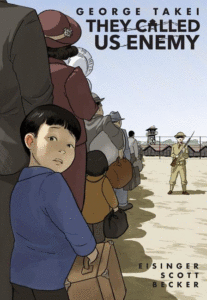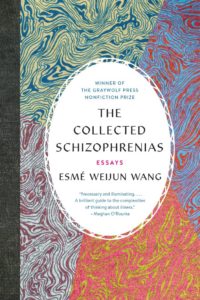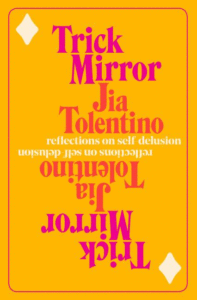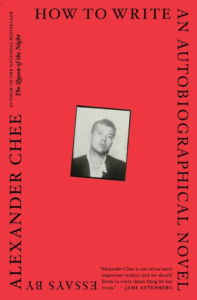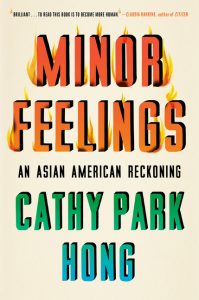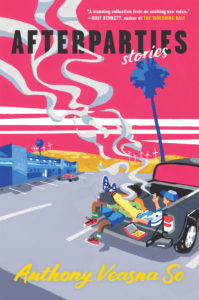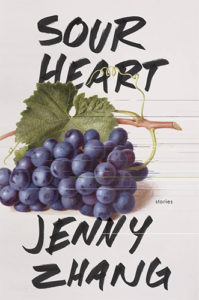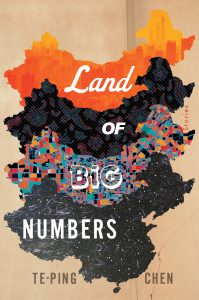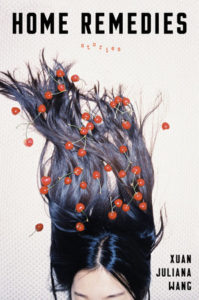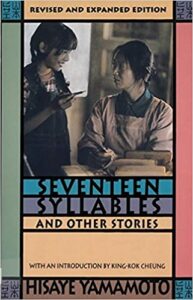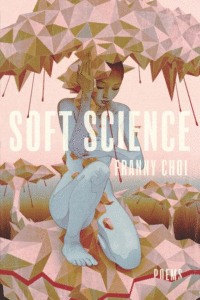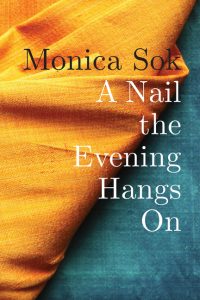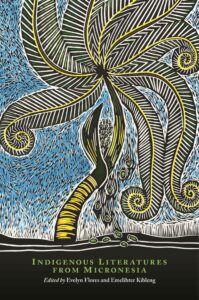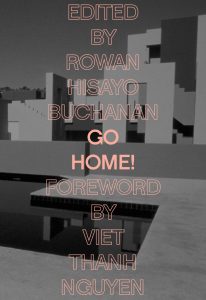Yes, it might seem a little late in May for an Asian Pacific American Heritage Month reading list. This is partially due to my extreme procrastination, partially due to the fact that I kept wanting to add more names, but mostly because I think everyone should be reading these books all the time. I’m giving you this list at the end of APAHM with the hopes that you will continue to hear and seek out these voices for a long time to come.
*
Novels
Ling Ma,Severance
(Picador)
You’ve probably been hearing a lot about how this is the perfect pandemic novel. Yes, in these pages, you will find a horrendous virus tearing its way through the globe in a manner not unlike what we are experiencing right now. Except in Ling Ma’s Severance, the virus turns people into zombies—not so much dangerous as they are incredibly banal. That’s part of what’s so eerie; the “fevered” are stuck mindlessly in their everyday routines (one particularly haunting scene includes watching a fevered family set the table, go through the motions of eating, clear the dishes, rinse, and repeat), which they perform until their bodies rot. Our hero is a twenty-something-year-old woman working in publishing, in New York City. In a lot of ways, the novel is about being disillusioned with this place. It’s also about immigration and the occasional hollowness of nostalgia, religion, and the things we do to assimilate into a new culture.
Julie Otsuka, The Buddha in the Attic
(Anchor)
We begin here: “On the boat we were mostly virgins. We had long black hair and flat wide feet and we were not very tall. Some of us had eaten nothing but rice gruel as young girls and had slightly bowed legs, and some of us were fourteen years old and were still young girls ourselves.” This is the opening passage of Julie Otsuka’s groundbreaking (and PEN/Faulkner Award-winning) novel. This is how we are introduced to our narrators, a group of Japanese “picture brides.” We follow them as they immigrate to California. We watch helplessly as they meet the husbands they were promised to, as they attempt to assimilate into America and raise children across a cultural divide. Her use of “we” is brilliant here; it mimics the immigrant experience, the way “others” are often seen as the same. It also touches on the automatic camaraderie and safety we might find among those who share our stories. The most piercing part of this novel comes at the end (spoiler alert)—when there is a sudden shift in the narrative. The “we” abruptly becomes the white Americans who are left to tell the story, after their Japanese neighbors are sent to internment camps. The Buddha in the Attic is both an artful, intimate portrait of individual lives and an indictment of history that’ll leave you, well, speechless.
K-Ming Chang, Bestiary
(One World)
K-Ming Chang’s debut novel is one wild romp. It follows three generations of Taiwanese-American women, infusing their lives with the fantastical. Inside Bestiary, you will find: a tiger woman hungry for children, a woman pregnant with snakes, and a grandmother’s letters appearing through holes in the yard. K-Ming Chang operates with a poet’s touch, and the images she conjures here have real staying power.
Charles Yu, Interior Chinatown
(Vintage)
Winner of the 2020 National Book Award, Charles Yu’s wildly inventive novel flips the script on Hollywood and the way it fails to see us. Structured like a screenplay, Interior Chinatown follows Willis Wu aka Generic Asian Man aka Disgraced Son; the list goes on. Always the background character, never the respected and celebrated hero. This is a story for anyone who doesn’t always feel like a protagonist in their own life.
Ocean Vuong, On Earth We’re Briefly Gorgeous
(Penguin Press)
Renowned poet Ocean Vuong’s debut novel takes the form of a letter. It’s written to the speaker’s mother, which is heartbreaking because she can’t read English. On Earth We’re Briefly Gorgeous burrows into unspoken family history and the complicated bond between a single mother and her son. It is a poet’s exploration of language. (A line that stuck with me: “It’s not fair that the word laughter is trapped inside slaughter.” Seriously, you should also go back and read Night Sky With Exit Wounds, Ocean Vuong’s critically-acclaimed poetry collection, too.) It is a queer love story. It also turns a mirror to the wold, asking us to reflect on class and race. (Honestly, just reading Jia Tolentino’s review in The New Yorker made me cry.)
Weike Wang, Chemistry
(Vintage)
One of my best friends sent me this debut novel when it first came out several years ago. She called me up and said, “You’re going to love Chemistry. It’s like Dept. of Speculation, but for us.” What she means by this, I think, is that it’s a beautifully written novel, told in fragments, from the perspective of a wryly funny but ultimately very endearing narrator. Our narrator is a Chinese-American scientist who’s forced to reexamine her life and her notions of love and family. The author, Weike Wang, received her undergraduate degree in chemistry from Harvard (every Asian parent’s dream!) before pivoting to writing (nightmare!). She lets bits of her background knowledge float it in an extremely satisfying way; she is a master at taking scientific fun facts and spinning them so they say something about our humanity.
C Pam Zhang, How Much of These Hills Is Gold
(Riverhead)
You don’t necessarily picture Chinese Americans in the Wild West, do you? C Pam Zhang’s debut follows two newly-oprhaned siblings trying to do right by their family while also simply trying to survive in a hostile place. How Much of These Hills Is Gold is an exploration of omission and the things that keep us going. Set against the backdrop of the Gold Rush while also delving into the intimacies of family, this novel masterfully uses its cinematic lens. She challenges the structure and stereotype of the Westerns while also capturing the spirit of an adventure like I have never seen before. Is it cheesy to say she struck gold with this one?
Rachel Khong, Goodbye, Vitamin
(Picador)
Reader, meet Ruth. Her fiancée has just called off their engagement. She moves back home, only to find that her father is struggling with Alzheimer’s. Who knew a novel about such bleak stuff could also be so funny? Rachel Khong strikes the perfect balancing act here. Goodbye, Vitamin is presented to us as Ruth’s diary, and we are so lucky for that, because she proves to be a clever and generous observer of everyday life. (“Today you asked why it was that people say cloudless, but not cloudful.”) Each entry is a small thrill. In pared-back prose, she unearths the beauty of things we often overlook and captures the way it feels to watch the people we’ve looked up to shrink down to a more human-scale.
Viet Thanh Nguyen, The Sympathizer
(Grove Press)
Viet Thanh Nguyen’s Pulitzer Prize-winning novel, The Sympathizer is centers on a double agent, “a many of two minds,” an immigrant that is both 1) building a new life amongst other refugees in Los Angeles and 2) secretly reporting back to his communist superiors in Vietnam. You’ll be glad to spend the time investigating the duality of this fascinating character, all the while getting glimpses at the Vietnamese refugee community in California. The Sympathizer is an immersive, page-turning novel that will force you to confront the refugee perspectives long-ignored in the context of this terrible war. (Bonus: the follow-up, The Committed, came out earlier this year.)
Susan Choi,Trust Exercise
(Henry Holt)
In Susan Choi’s National Book Award-winning Trust Exercise, we are brought into the world of a competitive performing arts high school in 1980s American suburbia. She gets the details just right. She perfectly captures the way it feels to be in high school, to agonize over small pressures and social cues. And then halfway through the novel, Susan Choi throws a wrench in things. The world she created comes apart at the seams in a brilliant way. (I dare not spoil it, in case you have managed to avoid finding out what the twist is!) But I will say this: Trust Exercise gets at the heart of the way we experience and recall these formative years.
Celeste Ng, Everything I Never Told You
(Penguin)
“Lydia is dead. But they don’t know this yet.” That’s the bone-chilling introduction we get to the family at the heart of Celeste Ng’s Everything I Never Told You. What’ll keep you reading isn’t the how of her actual death; the story isn’t even really about her. It’s about her family, imploding. If you’ve read Celeste Ng’s other, wildly popular novel (also adapted for the screen with Reese Witherspoon and Kerry Washington), Little Fires Everywhere, you know that she is the queen of eerie plots, yes, but also of character detail and nuance. Celeste Ng somehow makes the small things we don’t notice about the people we love the saddest thing about them.
R. O. Kwon,The Incendiaries
(Riverhead)
This novel contains a cult. Do I have your attention? I was sold based purely on that description, but what I’ve found in these pages is so much more, so let me begin again: this crackling debut novel is about a young woman at a prestigious university who is lured into a North Korean cult. It is about the limits of faith and guilt. In these pages, you will find a grieving daughter, a hopeless lover and outcast, and a charismatic cult member coercing students to commit violent acts. It is a mesmerizing novel that will have you, too, under its charms.
Megha Majumdar, A Burning
(Knopf)
In just 289 pages, Megha Majumdar gives you a whole world. It is a world of corruption and injustice, but it is populated by people who have sacrificed enormously and hope earnestly. Her stunning debut novel begins with a terrorist attack on a train in India. Because of a careless Facebook comment, an innocent young woman is charged with the crime. From prison, Jivan tells us her story. And not just the story of the day on the train, but her whole story. We hear about the injustices her family faced growing up in poverty, the pride her father took in her literacy (my heart!), her aspirations of becoming a teacher. Jivan is the connective tissue of this story, but what makes this novel feel so full of life is the chorus of voices that also come in: PT Sir, Jivan’s old gym teacher who is trying to move up in the world through the right-wing party, and Lovely, a “hijra” (a transgender woman) who dreams of becoming a movie star. The convergence of storylines, of past selves and overlapping lives, is at the heart of A Burning.
Eric Nguyen, Things We Lost to the Water
(Knopf)
Things We Lost to the Water tells the story of a Vietnamese family, now in America and missing one of its members. While Huong and her sons try to make a home of New Orleans, her husband Cong remains in Vietnam. Eric Nguyen is very good at dropping in details that will break your heart (Huong still sends letters back to her husband. One of their sons, Binh, goes by Ben. There’s a tug-of-war kind of tension about assimilation that he captures so well.) This novel asks hard questions about what exactly ties us to the people we love and the people we were.
Memoirs
Michelle Zauner, Crying in H Mart
(Knopf)
You might know her as the incredible artist, Japanese Breakfast, but surprisingly this memoir doesn’t really focus on her fame or her music. It is not a celebrity tell-all. It’s a gorgeous portrait of a Korean American, growing up as one of the only Asians in her class in Oregon. It’s also an excavation of adolescence, an ode to her mother, and a love letter to the ways we can still feel connected to people after they’re gone. (10/10 would recommend listening to the new Japanese Breakfast album alongside this one; they balance each other beautifully.)
Maxine Hong Kingston, The Woman Warrior
(Vintage)
Once, I was talking to a family friend about mythology. There were the Greek myths, and the Roman myths, and the gods that slumbered in those stories. And then we pivoted to Chinese mythology, and I’ll never forget what she said, which was: “Our gods are our ancestors. Our mythology is in our ghost stories.” The Woman Warrior starts with a family ghost story; it is the story that haunts all the others. This memoir echoes with the sacrifices others have made; it gives the impression of funneling to a fine and inevitable point: Maxine Hong Kingston telling us her story, a blend of fairytale and “talk-stories,” oral traditions passed down. The thing I perhaps love the most about this memoir is that she chooses her audience so specifically: “Chinese-Americans, when you try to understand what things in you are Chinese, how do you separate what is peculiar to childhood, to poverty, insanities, one family, your mother who marked your growing with stories, from what is Chinese?” She doesn’t speak for all of us, but she pivots to us. On every reread, it catches me off guard in the best way.
Mira Jacob, Good Talk
(One World)
Mira Jacob’s groundbreaking graphic memoir is speaking to the elephant in the room. Prompted by conversations with her bold and inquisitive half-Jewish, half-Indian son, Mira Jacob touches on race, color, sexuality, interracial relationships, love, and so much more. Good Talk provides a vital starting point for these seemingly unapproachable or uncomfortable conversations, and we are all so lucky Mira Jacob has created the space for them to happen in her beautiful framework.
Ali Wong, Dear Girls
(Random House)
If you love Ali Wong’s stand-up specials, you will probably also love her book, Dear Girls, addressed to her two young daughters (though they are not to read it before the age of 21, as she states many times in the opening pages, because the book contains some pretty raunchy stuff). It covers more or less the same material as Baby Cobra and Hard-Knock Wife (how to trap a man, how to know if a Chinese restaurant is legit, what they don’t tell you about giving birth, etc.), but then Ali Wong does what she does best: surprise you. There are a few strikingly moving moments (still funny, but there’s a definite tonal shift) that I hadn’t necessarily been expecting. She shares stories about her liberating study-abroad trip during college, what it’s like to honestly bomb again and again on stage, and, most touchingly, how grateful she is to her parents and family, for their sacrifice, understanding, and unconditional love.
T Kira Madden, Long Live the Tribe of Fatherless Girls
(Bloomsbury)
T Kira Madden’s memoir is a raw and honest look at growing up queer and biracial in Boca Raton, Florida. It’s also about class (Madden, yes, like the shoes), crime, beauty, addiction, death, assault, and the curative camaraderie one finds amidst those who can share in your experiences. T Kira Madden’s distinctive voice is a buoy, something to hang onto as she takes you through the storms of adolescence and adulthood.
Yiyun Li, Dear Friend, from My Life I Write to You in Your Life
(Random House)
Honestly, it was really hard to pick which Yiyun Li book to include on this list. Her novel, Where Reasons End, is also a heartbreak and a half. But I do think we should start here, with her memoir that is also an ode to the writers she’s loved. (Hello, Katherine Mansfield!) She plays at their work, filling in the gaps of her own life with their words, finding the connections between one world between covers and another. She asks a very relatable question: why, oh why, do we write? This book lover’s memoir will sing to the book nerd in you.
George Takei, They Called Us Enemy
(Top Shelf)
George Takei is an icon. We know him from his celebrated time aboard the Starship Enterprise on Star Trek. We’d recognize his voice anywhere. (Even just seeing his name probably conjures the “Oh my” meme in your mind.) But They Called Us Enemy isn’t about that. In this graphic memoir, George Takei tells a different story: of his immigrant family, of the egregious institutionalized racism they faced, of being kept in a Japanese internment camp as a child. It’s a powerful story, in which he puts a familiar and beloved face to the horrors that this country has subjected hundreds of thousands of people to. They Called Us Enemy is a necessary and humanizing addition to this not-often-talked-about chapter in American history.
Essays
Esmé Weijun Wang, The Collected Schizophrenias
(Graywolf)
Esmé Weijun Wang’s collection of essays is a kaleidoscopic look at mental health and the lives affected by the schizophrenias. Each essay takes on a different aspect of the topic, but you’ll want to read them together for a holistic perspective. Throughout, she brilliantly dissects the language around mental health. (We never forget we are being guided by a writer.) She walks us through the technical muck, breaks down the Diagnostic and Statistical Manual (DSM-5)’s clinical definition. She also gets very personal, telling us about how she came to her own diagnosis and the way it’s touched her daily life (her relationships, her ideas about motherhood). This collection is a vital addition to the conversation around mental health, an astounding first step at breaking down the stigma.
Jia Tolentino, Trick Mirror
(Random House)
I’ve always felt that Jia Tolentino’s clean, thoughtful prose goes down like the first cup of coffee in the morning. (Something to wake you; something needed.) If you’ve been loving Jia Tolentino’s writings in The New Yorker, you will probably also enjoy her collected essays, whose topics run the gamut. She covers the history of the Internet, her brief stint of time as a reality TV contestant, our obsession with sweetgreen (me and my kale ceasar salad feel seen), scammers, sexual assault on college campuses, and much more. They read like the kinds of conversations you might have with a close friend, and there’s something reassuring about that sliver of recognition, the moment when you’re reading an essay and you think: yes, exactly, but she says it so much more eloquently.
Alexander Chee, How to Write an Autobiographical Novel
(Mariner Books)
From the author of the heartbreaking novel, Edinburgh, comes a collection of essays on writing, identity, love. But How to Write an Autobiographical Novel is so much more than a bundle of craft essays. It is an act of generosity. Alexander Chee shares all sides of himself. We come to know him as a Korean-American, a gay man, a Mainer, a New Yorker, a writer, a waiter, a teacher. Take note: this collection serves as a building block of the form.
Cathy Park Hong, Minor Feelings
(One World)
Beloved poet Cathy Park Hong doesn’t pull punches in her essay collection, Minor Feelings, a biting examination of the racism that plagues our country. Her voice is fresh, bold, and funny—a welcomed guide through the American consciousness. She pokes and prods at uncomfortable feelings: guilt, shame, smallness. She details the exhaustion that comes with justifying one’s existence. Make way: Minor Feelings takes up space in the most deserved and rewarding way. (Bonus good news: Greta Lee is adapting this collection for television.)
Short Stories
Anthony Veasna So, Afterparties
(Ecco)
Anthony Veasna So’s short story “Three Women of Chuck’s Donuts” appeared in The New Yorker nearly a year and a half ago. I remember this distinctly because it stopped me in my tracks in a way a New Yorker short story had not in some time. This is a collection that will stop you in your tracks. Here Anthony Veasna So invites you to into the world of the Cambodian-American youth, finding their footing in California. A father owns an auto-shop and supports his Khmer community, a queer couple grapples with love as one of them tries to start a “safe space” app, a young woman is believed to be a reincarnation of a beloved matriarch. Afterparties feels like its own complete place, with loosely linked stories and side characters disappearing from the pages only to resurface center-stage in the next piece; it’s a neighborhood you come to know and love.
Jenny Zhang, Sour Heart
(Lenny)
On page one of Jenny Zhang’s short story collection, she details living in a cramped apartment so horrid that her characters had grown accustomed to waking up surrounded by flattened cockroaches, to having to hold their bowel movements until they made it to the gas station across the street. So, you know pretty much right off the bat that you’re getting a smart, brazen, unapologetic, sometimes gross, always honest narrator. The biting hilarity just makes the moments of tenderness here all the more surprising and poignant.
Te-Ping Chen, Land of Big Numbers
(Mariner)
You could armchair travel to China with this collection. Te-Ping Chen paints every image with careful strokes. Having spent several years as a journalist in China, her expertise in observation is clear in her descriptions of place and the way she is able to pin people down on the page. But then she changes the rules on you—turns the painting around and calls it something else. Land of Big Numbers is an utter joy to read for the way it sets the rules of reality and then pushes us into the realm of the magical.
Xuan Juliana Wang, Home Remedies
(Hogarth)
The characters in Home Remedies loom larger than life. They are Real Americans. They are full-blown millennials. They are the reckless youth. They are the children of parents who can no longer relate. Xuan Juliana Wang is a refreshing voice that perfectly captures what it feels like to play at the edge of what’s expected and what’s possible. She finds strength in the growing pains.
Hisaye Yamamoto, Seventeen Syllables
(Rutgers University Press)
Hisaye Yamamoto’s Seventeen Syllables is an under-appreciated gem! Originally published in 1988, this story collection touches on 40 years of Yamamoto’s cutting and incisive work. In these pages, you will find part of the Japanese immigrant experience, World War II internment camps, the space between generations, and a few of the particulars of Japanese poetry (which give the collection its name).
Poetry
Franny Choi, Soft Science
(Alice James Books)
The first page of this collection is a glossary of terms. A ghost is defined as “the outline of silence.” A mouth dreams of being the sea, while the sea “does not dream; is only dreamed of.” This is the way we enter Franny Choi’s collection. Throughout the collection, the speaker switches from cyborg to flesh-and-blood human and back. Sometimes we’re not sure who we’re listening to, and it’s in this confusion that Franny Choi cleverly conflates the experience of being a machine and being a woman (specifically a woman of color). That is: the language given to us, the expectations placed on us. The obedience others feel they deserve. But there’s also definitely a playfulness to her poetry. (See: “I Swiped Right on the Borg” and “It’s All Fun and Games Until Someone Gains Consciousness.”) It is a triumphant joy.
Monica Sok, A Nail the Evening Hangs On
(Copper Canyon Press)
In this breathtaking collection, Monica Sok conjures a whole host of voices: from victims of genocide to the child of refugees. She is a master at weaving together all the threads: of lives, of fables, of the myths we make. A Nail the Evening Hangs On is both a work of great imagination and a condemnation of the part America has played in Cambodian deaths. It all rings true.
Anthologies
Indigenous Literatures from Micronesia
ed. by Evelyn Flores and Emelihter Kihleng
(University of Hawai’i Press)
Three years ago, the University of Hawai’i Press published a vital anthology celebrating the voices of Micronesia. This is a beautiful, polyphonic work, featuring poetry, short stories, personal essays, and even excerpts of plays from over 70(!) Micronesian writers. This anthology is the first of its kind and is undeniable proof that we need more.
Go Home!
ed. by Rowan Hisayo Buchanan
(Feminist Press)
“Go home!” Yes, we Asian-Americans know the invective well. (See also the less aggressive but similarly offensive: “But where are you really from?”) This incredible anthology, compiled in collaboration between the Feminist Press and the Asian American Writers Workshop, responds to that racist demand by presenting the many definitions of home. Inside, you’ll find Viet Thanh Nguyen building a house of language and storytelling, Esmé Weijun Wang seeking solace in food (her descriptions of Taiwanese beef noodle soup will make your mouth water), Alexander Chee’s first foray into the West Village in the 1990s, T Kira Madden heating up Campbell’s soup and taking care of her mother. In essays, poetry, and short fiction, these writers of the Asian diaspora defy stereotype and demand to be seen.
